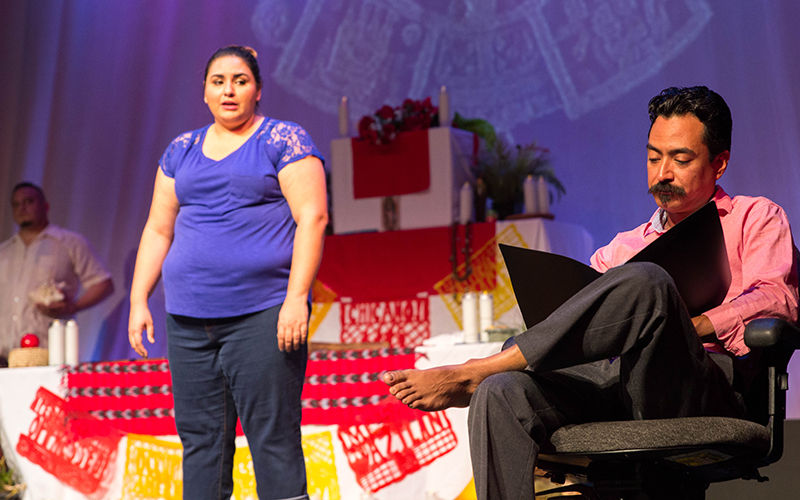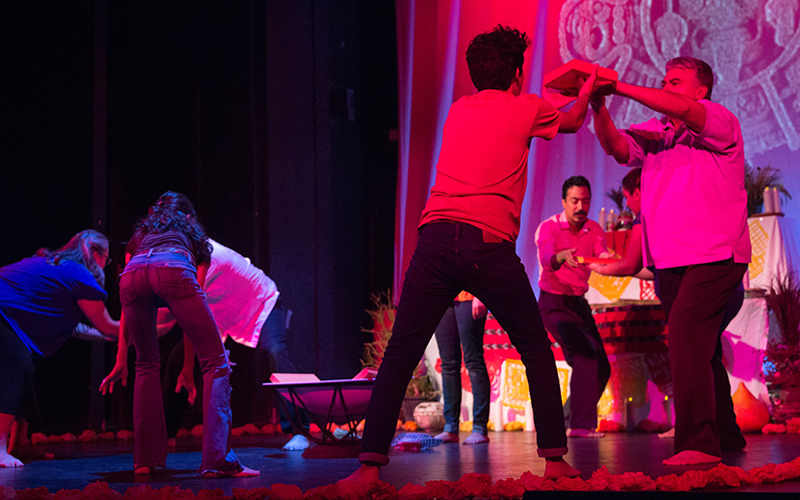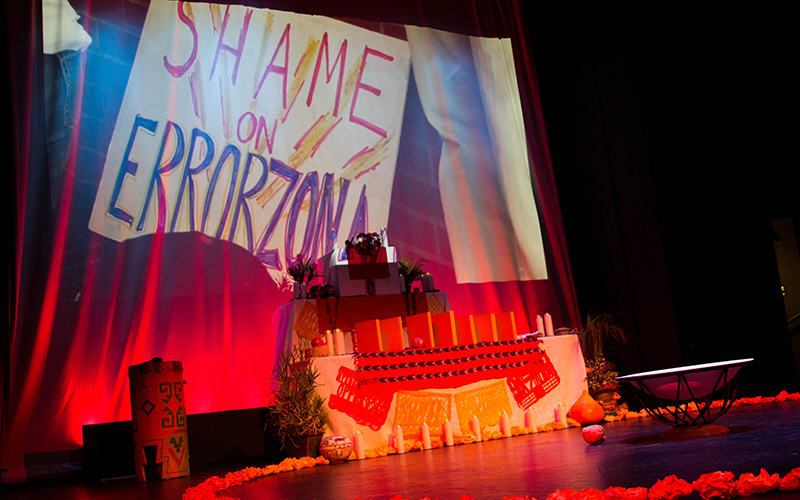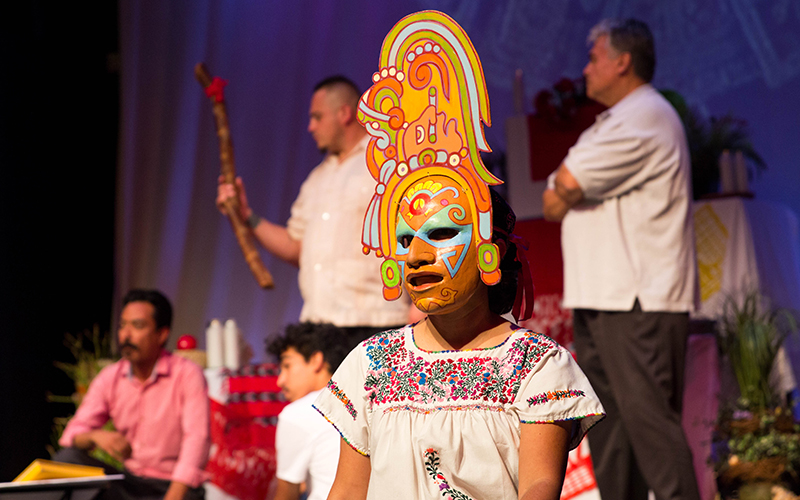PHOENIX – A circle of yellow cempasúchil flowers. An altar with books and candles. A religious portrait. A basket in the middle. All symbolic elements the Mexican culture uses to honor and represent death.
This was the scene on Saturday at the Phoenix Center for the Arts, where the audience was taken on a journey focusing on what happened during and after the Mexican-American Studies program in the Tucson Unified School District was banned by a state law in 2010.
“Más” is a play about the journey of the demise and the fight surrounding the bilingual program.
Más also means “more” in Spanish. Those responsible for the play said it’s a simple word to describe the need for more cultural education, more social recognition of minorities and more appreciation of differences.
The play started with students and teachers of the MAS (Mexican-American Studies) program taking the books from the altar, and passing them around while speaking about their personal experiences with the classes. They then put the books in the basket.
Some of their messages included, “I found how to be strong and not be pushed around anymore,” “MAS transformed my life,” and “Our MAS classes were about colonization.”
The MAS program in Tucson was created in the late 1990s in an effort to improve the performance of Latino students and reduce dropout rates. According to a 2003 report by the Arizona Minority Education Policy Analysis Center, dropout rates of minority students were nearly twice the rates of white students. A 2014 study in Tucson later showed that students enrolled in MAS classes were more likely to graduate.
The play portrayed the ways in which many of the students were disengaged from school, mainly because of problems at home, disrupted families, or economic challenges. A feat that MAS teachers thought could be overcome by strengthening the student’s identities.
In 2010, former governor of Arizona, Jan Brewer, signed into law the Arizona House Bill 2281 after a long campaign led by then Arizona Superintendent of Public Instruction Tom Horne, who had said the MAS program was discriminatory. The law prohibited classes that were “designed primarily for pupils of a particular ethnic group” and “advocate ethnic solidarity instead of the treatment of pupils as individuals.”
The poem, “In Lak’ech,” written by Chicano playwright Luis Valdez, was recited throughout the play. “In Lak’ech” is a Mayan concept that means “You are my other me,” and MAS professors used to start their classes by reciting this poem, which was also banned.
Valdez was part of Cesar Chavez’s labor union, United Farm Workers, and created The Farmworkers’ Theater, whose main purpose was to raise awareness by representing real, historical issues in a way in which the audience could understand them. “Más” mirrors this approach, too.
The second part of the play focused on some of the students fighting back.
One of their most well-known protests occurred on April 26, 2011, during a Tucson Unified School District board meeting where members were set to vote on whether to eliminate or keep MAS courses in the curriculum.
Former Rincon High School student Denise Rebeil participated in that protest.
“I personally participated in civil disobedience in attempts to protect such valuable education back in high school,” Rebeil said in an interview with Cronkite News.
Rebeil was one of the eight students who chained themselves to the board members’ chairs and was also interviewed for the play.
“I knew what was happening was an injustice and I wanted to participate in making sure the classes remained. I specifically was involved in the action because I became very involved and was directly being affected by the potential loss of the classes,” Rebeil said.
After the school board decided to eliminate the MAS program to avoid losing state funding, students took the issue to court. Seven years later, in August 2017, a federal judge ruled the elimination of the program unconstitutional. Judge A. Wallace Tashima found that “both enactment and enforcement were motivated by racial animus.”
“I think (the ruling) is going to continue to empower the community that feels that they’re being oppressed against, or targeted, or profiled, and not getting the opportunity and the privilege that other communities do,” said Annabelle Nuñez, who plays professor and human rights activist Guadalupe Castillo.
Tashima said he will decide what the “appropriate remedy” for the ruling will be after another hearing in the next few weeks.
Nuñez also said she thought this play was important because there’s still a large sector of the community who doesn’t know about the impact of the law and MAS courses.
She also thought the play helped the community to deal with some of the tensions that arose from the ban.
“It was a way to express those raw emotions of what was happening,” Nuñez said.



